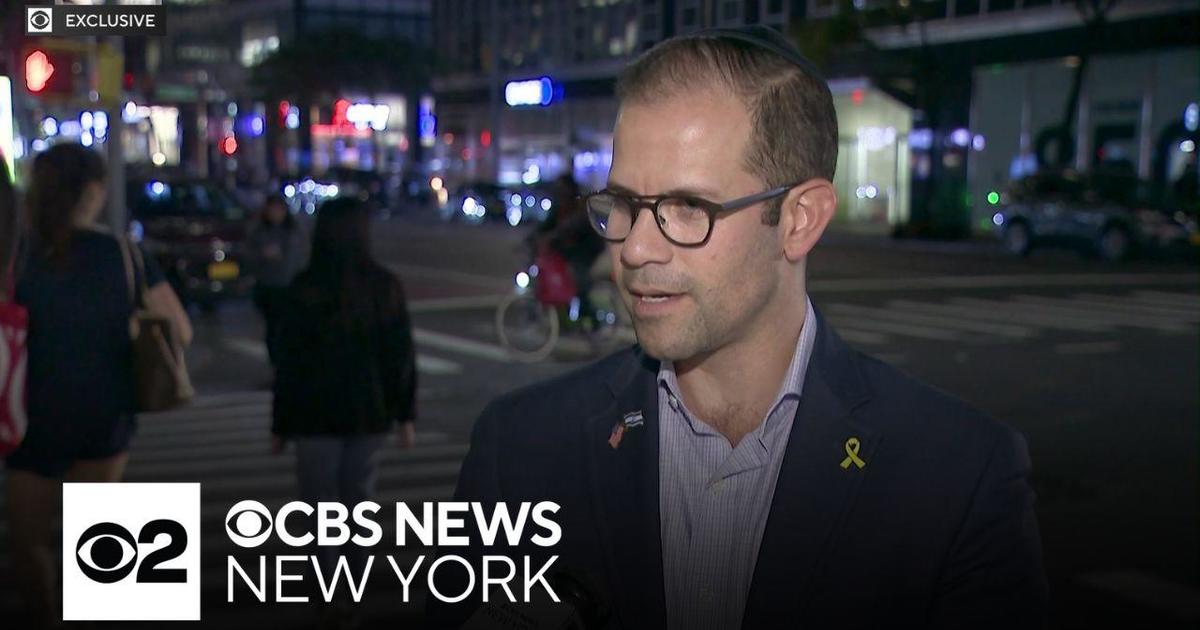
Though not pleasant and to many insulting, it’s not unusual for Jews following a Reform or Conservative path to hear from haredi authorities that they are not considered Jewish. However, when Rabbi Yaakov Perlow delivered his speech at the annual dinner of the Agudath Israel of America on May 27 at the Hilton Hotel in midtown Manhattan, while his tone was soft, his words accusing other Orthodox Jews of being heretics and the Rabbinate of Israel to be not harsh enough in dealing with them, set off waves of reaction both condemning and condoning his words.
The Novominsker Rebbe and rabbinical head of Agudath Israel said, in the presence of a host of New York City and State officials, that “There’s a grave danger out there…outside New York City, that positions of leadership amongst Orthodox Jews is being taken over by people who have completely deviated from the preservation of holiness.” He said, “The Torah must be guarded from the secular forces that seek to corrupt its values and the lives of [Jews], from intruders who sometimes in the name of Judaism completely subvert and destroy the eternal values of our people.”
Perlow specifically condemned Open Orthodoxy, and the Israeli Chief Rabbinate as being too lenient in their dealings with the movement, and said of Conservative and Reform moments that “They’ve become oblivious, and they’ve fallen into the pit of intermarriage and assimilation. They have no future, they almost have no present. They will be relegated to the dustbins of Jewish history.”
Rabbi Asher Lopatin, president of Yeshivat Chovevei Torah, countered Rabbi Perlow’s comments with a statement filled with joy that the Novominsker actually had thought about what is correctly termed Modern Orthodoxy. He sent JLBC the following statement:
“The negative, disparaging language the Novominsker used does no one any good; there is no excuse to openly to insult Reform Judaism, Conservative Judaism, or any other movement. I see the remarks of the Novominsker Rebbe towards our yeshiva, however harsh and caustic as they are, as the beginning of an engagement between the haredi community and a revitalized Modern Orthodox community. I hope these initial remarks will develop into an ongoing dialogue and connection with Yeshivat Chovevei Torah to discover what we are about, to join forces in a shared mission of bringing Hashem’s Torah to the world. Despite the unfortunate language, it’s good to know that the Novominsker is ‘open’ enough to speak frankly and tell us what he really thinks! I have such warm feelings towards the Novominsker because, as a student of Rav Ahron Soloveichik, zt”l, I got to know Rav Perlow’s brother, zt”l, who was living in Skokie at the time. Rav Ahron and Rav Perlow had a wonderful, supportive relationship. I would love to continue that Chicago connection in New York!
“Certainly the broad Modern Orthodox community (which the Novominsker mistakenly calls the Open Orthodox movement) has a different approach to Torah and Mitzvot, to fear of God and fear of Mitzvot, than the haredi community. Nevertheless, we both value the Divine word of Hashem and the binding nature of the Tradition. So I am confident that as time goes on, and as the Novominsker sees the incredible work of our graduates all over the world—in shuls, schools, college campuses, hospitals, and Jewish organizations—he will come to appreciate the Torah message we have.
“In the meantime, I invite the Novominsker to come see the yeshiva for himself and meet our students, teachers, and our graduates as well. This August our students will be working on the Laws of Shmita, and they would welcome the insights and ideas that the Novominsker has on this 3,500-year-old piece of our heritage. The Beit Midrash of Yeshivat Chovevei Torah is the perfect place for strong, frank arguments and disagreements—that is the way Torah thrives—but these passionate relationships should always be combined with love and respect. I hope that is the direction the Novominsker will take his community; that is how we learn Torah at YCT Rabbinical School.”
Rabbi Avi Weiss, senior Rabbi of Bayit of Riverdale, did not respond directly to Perlow’s remarks but emailed JLBC an article he had written in 1997, “Open Orthodoxy,” which speaks directly to the topic of Perlow’s statements.
He stated, “As a Modern Orthodox Rabbi, I profess an unequivocal commitment to the truth, validity, and eternal applicability of the halachic system. No less than my brethren of the Orthodox Right, I believe in Torah Sinai, the log given by God at Sinai, to which the Jewish people committed itself.”
He further stated that, “The fundamental difference between Sinaitic law and non-Sinaitic law, according to Maimonides, is that laws from Sinai, coming as they do directly from God, are free from controversy. There is only one view on every issue. Non-Sinaitic law, on the other hand, which is the result of rabbinic interpretation, is subject to controversy. After all, two rabbis of equal piety, intellectual ability, or stature may disagree, and both be correct…Thus, halacha has a degree of flexibility…halacha is a living structure that operates within absolute guidelines, yet one which is broad enough to allow significant latitude for the posek (decisor) to take into account the individual and his or her circumstances. …
“To be sure, I readily acknowledge that there exist differences in approach within the halachic system among the Modern Orthodox rabbis like myself, and my Orthodox Right counterparts. For example, Modern Orthodoxy more readily sees halacha as flexible within rigid parameters than the Orthodox Right. Additionally, in halachic observance, the Modern Orthodox community is more open to halachically-grounded innovation—like the institution of Yom Ha’Shoah as a day commemorating the Holocaust—while the Orthodox Right is wary of virtually all innovation, fearful that it will lead to a breakdown of halachic norms.”
By Anne Phyllis Pinzow










